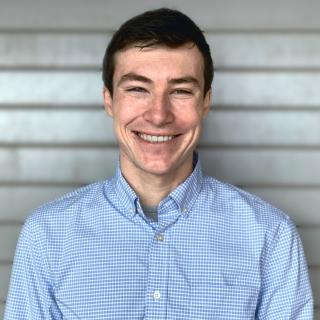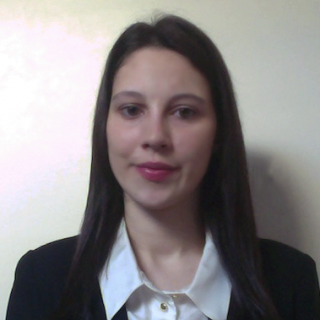Division Director

Karen McDonald is a Professor of Chemical Engineering at the University of California at Davis. She also previously served as the Faculty Director and Co-PI of the UC Davis ADVANCE Institutional Transformation program, a NSF-funded program to recruit, retain, and advance women STEM faculty. She is the Institutional Co-I for CUBES at UC Davis and Division Lead for the Food and Pharmaceutical Synthesis Division.
Prior to leading the UC Davis ADVANCE program, she served as Associate Dean for Research and Graduate Studies in the College of Engineering for 13 years. She is a member of the graduate program/groups in Chemical Engineering, Biomedical Engineering, and Plant Biology and the Designated Emphasis in Biotechnology program. From 2003-2015 she served as the Co-Director of the NIH Training Grant in Biomolecular Technology at UC Davis, an innovative multidisciplinary research and educational training for doctoral students working at the interface of life sciences and engineering/physical sciences in application areas related to human health. From 2006-2013, she was the PI and Director of the NSF Collaborative Research and Education in Agricultural Technologies and Engineering (CREATE) IGERT, an interdisciplinary graduate training program with Tuskegee University focused on applications of plant biotechnology to biopharmaceuticals, biorefineries and sustainable agriculture.
Dr. McDonald and her collaborators apply synthetic biology tools in plants for the development of novel expression systems as well as applying bioprocess engineering technologies to produce recombinant proteins (including human therapeutic proteins, enzymes for cellulose degradation, and biopolymers for materials applications) using whole plants, harvested plant tissues, or plant cells grown in bioreactors. As a biochemical engineer, she is interested in translational research and strives to develop novel biomanufacturing processes that are scalable, cost effective, and meet a variety of design constraints. She has lead large multidisciplinary research teams such as a Defense Threat Reduction Agency-funded project to develop a platform for plant-based production of bioscavengers against biothreat agents.
Faculty

Somen Nandi is an Adjunct Professor in the Department of Chemical Engineering and the Managing Director of Global HealthShare® initiative at the University of California, Davis.
Dr. Nandi has been working on molecular breeding technology to produce the heterologous proteins in different platforms for past 18 years. He has extensive experience on the application of bioprocess engineering technologies to produce recombinant proteins (including human therapeutic proteins and enzymes) using seeds, whole plants, harvested tissues or cells grown in vitro in bioreactors as hosts, improve efficacy of target molecule by enzymatic glycan modification and performing techno-economic analyses. This multidisciplinary effort led to the development of five products, now in the market and two molecules in human clinical trials. He is interested in translational research and continually strives to develop processes that are scalable, cost effective, and meet quality specifications and regulatory requirements. Somen leads large multifaceted programs and is experienced teaching and mentoring both in developing and developed countries, including managing teams with diverse expertise, cultural, and ethnic backgrounds. Somen’s research efforts in CUBES are to produce therapeutic proteins and food via optimization of plant metabolic engineering and in limited resource environment like Mars.
Graduate Student

Katie is a PhD student in the Biomedical Engineering Graduate Group at UC Davis working in the McDonald/Nandi Lab. She received her BS in Biomedical Engineering from the University of Oklahoma, where she worked under the NASA EPSCoR STEM Workforce Development grant to develop targeted nanoparticles for therapeutic delivery. Her current work uses plant viruses to separate antibodies and Fc-fusion proteins from crude feedstocks for the production of biopharmaceuticals in space.

Lorenzo is a Master's degree student in Agro-food Biotechnology in Verona (IT). He earned his Bachelor's degree in Biotechnology in Pavia (IT) and he works as a research student in Davis. His previous experience mostly concerns plant biotechnology as he worked in molecular biology and protein purification of Zeaxanthin epoxidase.
Tressa is a PhD candidate in the Biochemistry, Molecular, Cellular and Developmental Biology graduate group at UC Davis. She earned her B.S. in Environmental Systems: Ecology, Evolution and Behavior at UC San Diego. Previously she worked on harnessing microalgae for production of lipids for biofuels, as well as production of recombinant therapeutic proteins. Her current work is focused on producing recombinant therapeutic proteins for use in space by engineering whole plant systems.

Shanice is a PhD student in the Chemical Engineering department at the University of California, Davis, working under Dr. Karen McDonald and Dr. Somen Nandi. She earned her B.S. and M.S. in Chemical Engineering at Northwestern University, and has prior experience with bacterial synthetic biology and metabolic engineering. She worked as a pilot operations engineer at Edwards Lifesciences before returning to school. Her current research involves the purification of pharmaceuticals in transgenic plants within the scope of the NASA CUBES II project.
Outside of research, Shanice enjoys running, hiking, gaming, and arts and crafts.

Justin is a PhD student in the Chemical Engineering Department at the University of California, Davis. He earned his B.S. in Chemical Engineering at Northeastern University and worked as a bioprocess development engineer for Synlogic before returning to school. His current research focuses on using modified plant viral particles for the purification of antibodies and Fc-fusion proteins, and the production of pharmaceuticals in transgenic plants
Alumni

Dexter is a first year Ph.D. student in Chemical Engineering at UC Davis in the McDonald-Nandi Lab. He received his B.S. in Chemical Engineering from Columbia University, New York and his B.A. in Chemistry from University of Puget Sound, Washington through a Dual Degree Program. He is currently developing stable lines of transgenic lettuce, which express a parathyroid hormone fusion protein.
Jesse Delzio is a third year biochemical engineering undergraduate at the University of California, Davis. He began research with Dr. Somen Nandi and Dr. Karen McDonald in July 2017 and is currently researching drug purification through the functionalization of viral coat proteins to be used for simpler isolation in low resource environments such as Mars. He is currently working under the mentorship of Matthew McNulty. His interests include chemical engineering, biotechnology, and plant engineering. Jesse has investigated the expression and capture of recombinant parathyroid hormone from different lettuce varieties. He has also provided calculations of land area and expression levels required to sustain a team of astronauts on Mars.
Prior to his research in the McDonald-Nandi lab, Jesse worked as a lab intern for a chemical company in San Diego called Designer Molecules Inc. His main interests were chemistry and physics. He applied to the University of California, Davis and studied chemical engineering for his first two years. After discovering a project involving biomanufacturing for deep space exploration led by Dr. McDonald, Jesse's interest in biotechnology and biology grew, urging him to switch majors to biochemical engineering. He has been researching for the Center for the Utilization of Biological Engineering in Space on their Mars exploration project ever since.

Pauline received a bachelor's degree and a master's degree in pharmaceutical sciences from the University of Lyon, France. She is currently a visiting scholar in the Department of Chemical Engineering in the McDonald Laboratory at UC Davis.

Kalimuthu Karuppanan is a Postdoctoral scholar in the Department of Chemical Engineering, at the University of California, Davis. He received his Ph.D. in Biotechnology and M.S. degree in Plant Science from Madurai Kamaraj University, India. Since he has been at UC Davis Dr. Karuppanan has contributed to a number of research projects funded by DARPA, DTRA, and NSF and he has mentored many Ph.D. students and undergraduate researchers. He was the instructor for ECH161L, Bioprocess Engineering Laboratory course, in 2014 at UC Davis. He received the campus-wide Award for Excellence in Postdoctoral Research in 2016 and Phil Thai Memorial Award in Medicine for Lung Research in 2015 for his outstanding research performance. He is a co-inventor in a recently filed patent on Novel Fusion Proteins for Treating Inflammatory Diseases. Dr. Karuppanan is a CUBES Co-PI and member of the Food and Pharmaceutical Synthesis Division.
His research is in protein biotherapeutics for treating infectious and non-infectious diseases. He has extensive experience in recombinant protein bioprocessing in planta. His work includes gene design, designing vector systems for agrobacterial-mediated gene transfer in plants, protein expression using plants and plant cell suspension cultures, protein purification using affinity and traditional chromatography systems, biophysical and functional characterization of recombinant proteins, and drug efficacy improvement by enzymatic glycan modification.
Imran Khan received PhD fellowship from German Academic and Exchange Service (DAAD) for his doctoral study at Institute for Molecular Biotechnology, RWTH Aachen University, Germany. He also served Vienna Institute for Biotechnology, Vienna, Austria, as researcher where he investigated expression and targeting of recombinant proteins in plant tissues. He also received research funding as PI and supervised PhD and master students working as Assistant Professor at Center for Interdisciplinary Research, Islamabad, Pakistan. He completed his postdoctoral study from University of Bonn, Germany that was also funded by DAAD, Germany. In 2019, Imran received Penn Biomedical Postdoctoral fellowship for postdoctoral study at School of Dental Medicine at University of Pennsylvania, Philadelphia, USA, where he worked on oral delivery of plant made biopharmaceuticals using Chloroplast production system, in collaboration with Takeda, Japan. He joined Dr. McDonald/Nandi lab in 2021 at University of California, Davis, USA, as Assistant Project Scientist. His current research focus on development of platform technologies for bio-manufacturing on Mars to provide food and pharmaceuticals for colonists, funded by National Aeronautics and Space Administration (NASA), USA.

Matt received his B.S. in Chemical Engineering from the University of Massachusetts, Amherst. He previously worked as a process engineer for Sanofi Genzyme. His current research focuses on developing a novel biologically-derived bioseparations platform for limited resource environments.
Patrick is a first-year student in the Chemical Engineering department at UC Davis, where he works in the McDonald-Nandi lab. He earned his BS in Chemical Engineering at UC Berkeley. Patrick joined CUBES because he is passionate about biotechnology and hopes to improve the safety and feasibility of space missions.
Dr. Trenton (Trent) Smith is an Associate Professor of Biology at Simpson University in Redding, California. He received his Ph.D. in the lab of Dr. Vicki Vance at the University of South Carolina in 2001, studying viral suppression of RNA interference in plants. Specifically, he generated and studied suppression of RNAi in transgenic Arabidopsis thaliana expressing the helper component proteinase from Turnip Mosaic Virus. In early 2018, Dr. Smith joined with the lab of Dr. Karen McDonald and Dr. Somen Nandi at UC Davis, as a visiting scientist. He is designing systems to express cell wall-degrading enzymes in potato, as part of the biofuels work of CUBES.

Yongao (Mary) Xiong is a Ph.D. candidate in the Department of Chemical Engineering at UC Davis in the McDonald-Nandi Lab (http://mcdonald-nandi.ech.ucdavis.edu). She received her B.S. in Chemical Engineering from University of Washington, Seattle. She has mastered in recombinant protein production, purification, and functional characterizations using plant systems. Her work includes the process optimization of transient protein expression in leaves/cells utilizing agrobacteria-mediated gene transfer, chromatography method development (resin and membrane-based), and bioassay design. In addition, she is investigating approaches to modify and control protein N-glycosylation profile through subcellular targeting, the incorporation of glycan processing enzyme inhibitors and in vitro enzymatic treatment. Mary examines the effects of N-glycosylation on protein properties and molecular structures. She has started working on fine tuning of downstream process engineering of the recombinant PTH-Fc and functional characterizations using a combination of label-free protein-based assay and cell-based assays.

Kevin earned a BS in Chemical Engineering with minors in Electrical Engineering and Mathematical Sciences from Michigan Technological University. He has a strong interdisciplinary background from his time working in a variety of industries. His PhD research involves the production of pharmaceuticals in transgenic plants within the scope of the NASA CUBES project.